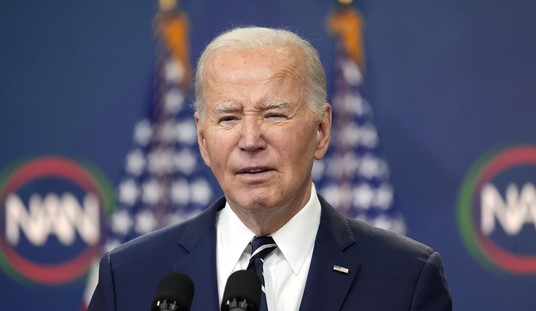ABC’s Good Morning America hit a grand slam today for the homosexual activist movement by airing a profoundly misleading segment that asks, “Can a Baby Be Gay?”
A longer segment is slated for tonight’s 20/20.
Convincing the public that some people are “born gay” is a central strategy of homosexual activists, who are being aided by a compliant media that routinely fails to examine such claims. If sexual behavior is hard-wired like race, then moral considerations can be swept aside, homosexuality declared a “civil right” and governments can move against people who believe homosexuality is wrong.
The Good Morning America story follows the script proposed in the gay strategic manual After the Ball, by Marshall Kirk and Hunter Madsen. The two Harvard-trained PR experts set out to “overhaul straight America,” which was the title of an article out of which After the Ball was born as a full-length book in 1989.
The authors tell activists to use the media to portray homosexuality as in-born, and homosexuals as victims. The heavies in the drama are proponents of traditional morality –especially Christians—who are to be depicted as ignorant at best, and haters and bigots at worst. The authors further advise that under no circumstances should the public be informed of actual homosexual behavior. Over the years, the media rarely have veered from the script, and Good Morning America is no exception.
Host Diane Sawyer begins the Good Morning America segment by proclaiming the advent of a “truly landmark study” (whose results won’t come out until later this year) about “biology and being gay.
Recommended
And of course, what about the people who still believe that homosexuality is a choice?” Wink, wink. These are the same folks who still believe in a flat earth.
The report is framed around a boy named Zack, who, along with his parents, believes he was “born gay.” The lone dissenter, Dr. Stanton Jones, is introduced as “a clinical psychologist and evangelical Christian.” No one else’s religious beliefs are mentioned. The message: Pay no attention to this man. His views are religious, not scientific.
Here’s a portion of the transcript of the 4-minute, 19-second segment. Parentheses are added:
(reporter) LYNN SCHERR: …Zack's parents both believe that homosexuality was probably in their son's DNA. For them, there is no medical mystery. But might a proven genetic link help other parents understand what they saw with their own eyes? Dr. Alan Sanders, a psychiatric geneticist at Northwestern Healthcare Institute, is currently heading the biggest study ever undertaken on sexual orientation. Do you believe you're going to find a gay gene?
SANDERS: I think the evidence is pretty convincing already that a substantial contribution to sexual orientation comes from genetics. It’s probably the single biggest factor that we do know about. (Sanders is shown in a lab with lots of technical stuff around him.)
SCHERR: But Dr. Stanton Jones, a clinical psychologist and evangelical Christian, says genetics plays at best, just a small role. (Jones is shown typing on a computer in an office.)
JONES: The major misunderstanding in public awareness is that people are gay when they’re born and it’s just a matter of acknowledging that after you’ve developed the initial awareness.
SCHERR: (quick cut, confrontational tone) And what's wrong with that position?
JONES: That the evidence doesn't support it. The scientific evidence doesn't support it.
Instead of exploring Jones’ contention, for which there is ample documentation, Scherr instead turns to Zack’s parents to pose a question that has the effect of ridiculing Stanton’s position:
SCHERR: But if science does find that genetic link to homosexuality, could there one day be a test that could tell parents about their baby’s sexual identity in the womb, so they could perhaps change it? Cindy O'Connor would never have considered it.
SCHERR off camera to Zack’s parents: If they offered you a patch – a hormone patch?
ZACK’s DAD, laughing: A vaccine?
SCHERR: To say, well, we think he's going to be gay, would you rather take this and we know he’ll be straight.
CINDY O’CONNOR: No, I wouldn't have cared. He’s who he is, it doesn’t matter. You know, it’s not relevant.
Diane Sawyer then says, in studio with Scherr, “Really, interesting. Interesting study they’re doing. And when’s it coming out?” Scherr answers that they “hope to have the first results at the end of the year.”
But why wait until then? Why not continue to stack the deck for the “gay gene.”
Since 1991, the media periodically have reported scientific claims of a genetic component to homosexuality, often on the front page of newspapers like The New York Times and in evening newscasts. Although none of the studies has held up under scrutiny, and none has been replicated—a necessary element for scientific validity—the media continue to sing from the gay songbook.
The focus of the GMA segment, the young man, Zack, says he felt different from a very young age. Although this in no way lessens the credibility of competing theories that environmental factors are paramount in the formation of sexual desires, it stands as given: He felt “gay,” so he must have been born that way.
Dr. Jeffrey Satinover, a psychiatrist with degrees from MIT, the University of Texas and Harvard, has written extensively about problems with genetic research on homosexuality, and also about professional organizations’ refusal to consider opposing evidence. In his book Homosexuality and the Politics of Truth, Satinover says genetic factors might contribute “not to homosexuality per se, but rather to some other trait that makes the homosexual ‘option’ more readily available than to those who lack this genetic trait.”
He notes that most basketball players tend to be tall, but that this does not mean that they have a “basketball gene.” It only means that they might gravitate toward that sport because of their height. Similarly, a young boy might be more sensitive than other boys, be less athletic, be rejected by his father and peers, and hence be starved for male approval. An early sexual experience could then take him down a path he might not necessarily have taken.
Satinover notes that cultures worldwide historically have varied greatly in terms of homosexual practice and that this indicates that “environmental” factors are at work.
Given that such cultures have existed where the incidence of homosexuality is far greater than at present, the incidence of homosexuality is clearly influenced by mores.
Good Morning America could have made their story more balanced, also, by including an interview with a former homosexual who once believed he or she was “born gay.”
By ignoring scientific articles and books—and the existence of people—that effectively rebut the “gay gene” theory, and presenting homosexuality as something in-born and no more consequential than being right-handed or left-handed, Good Morning America continues to distort public understanding of a complex issue.
The authors of After the Ball, wherever they are today, must be smiling.

























Join the conversation as a VIP Member